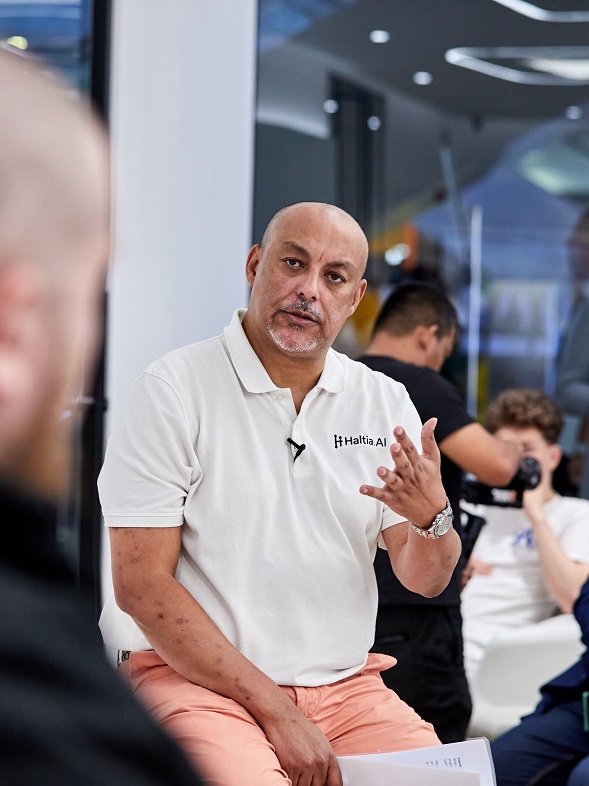Haltia.AI Applauds Apple’s Move Toward User-Centric AI
Dubai, UAE, June 11, 2024 – Haltia.AI, a pioneer in trustworthy, on-device AI, welcomes the recently reported details about Apple’s privacy-focused, device-centric approach to artificial intelligence, set to be announced at WWDC 2024 later today. Haltia.AI, which has been at the forefront of privacy first AI since its inception, views Apple’s strategic focus on privacy as a significant validation of its own principles and technologies.
While Apple’s focus on user privacy is a positive step, Haltia.AI has been founded on the principle that true privacy requires complete control over personal data. Unlike Apple’s reported hybrid approach, Haltia.AI champions on-device AI processing, leveraging cutting-edge quantization technology to enable powerful AI capabilities directly on member devices, without relying on the cloud. Since Q3 of last year, Haltia.AI has been a leader in deploying private AI directly on devices, with proven success on Apple’s flagship iPhones and iPads. This means user data never leaves your devices, ensuring the highest level of privacy and security.
Furthermore, true user control over data requires a more fundamental shift in AI architecture. Haltia.AI’s leadership in neurosymbolic AI offers a powerful alternative. This groundbreaking approach combines the strengths of natural language processing with the reasoning capabilities of knowledge graphs. It personalizes AI interactions by capturing member information securely on-device, using ontologies and knowledge-graph methodologies. This approach unlocks benefits such as:
● Clear-box AI: Understand how the AI arrives at its conclusions, fostering trust.
● Precise & justifiable reasoning: The AI delivers more accurate and relevant results, with justification.
● Explicit knowledge representation: Personal information is stored and used transparently, and not subject to LLM hallucinations.
● Continuous learning: The AI adapts to your preferences over time, and captures & amends knowledge about your world.
● Knowledge sharing and transfer: Captured knowledge can be shared for use by others and other AI systems.

Arto Bendiken, CTO of Haltia.AI, commented, “Apple’s focus on privacy is a step in the right direction, but true privacy means never compromising user data by uploading it to the cloud. Neurosymbolic AI running entirely on-device is the only viable path toward trustworthy personal AI.”
Talal Thabet, CEO of Haltia.AI, added, “We are out-appling Apple in our uncompromising approach to privacy. While Apple may emphasize privacy, their approach might still sacrifice user data to the cloud due to hardware constraints. At Haltia.AI, we promise never to rely on the cloud for user data storage, providing a level of trust and security that is unmatched. Additionally, while Apple’s solutions will always be limited to their own devices, our platform-agnostic approach supports both Apple and Android devices.”
Haltia.AI recognizes the ongoing evolution of the AI landscape, and as various Large Language Models (LLMs) continue to specialize, users may require access to external information and capabilities. Haltia.AI’s platform is designed with user choice and transparency in mind, hence the company is exploring ways to securely integrate aggregated access to all LLMs, composing the AI experience that is right for them while ensuring users have complete control over when and how their data is used. Haltia.AI’s commitment remains unwavering: user privacy will always be paramount. Any access to external resources will be done with explicit user consent and through methods that prioritize security and data obfuscation.
Haltia.AI’s resolute focus on privacy is deeply ingrained in its DNA. Founded by cypherpunks – strong advocates for digital privacy – the company boasts a team dedicated to ethical and trustworthy AI development. The company believes that while cloud-based AI is useful as a utility, the future of personal AI lies in local, trustworthy solutions that can handle intimate and personal matters securely on-device, and that’s why they have a zero-tolerance policy for compromising user data security.



